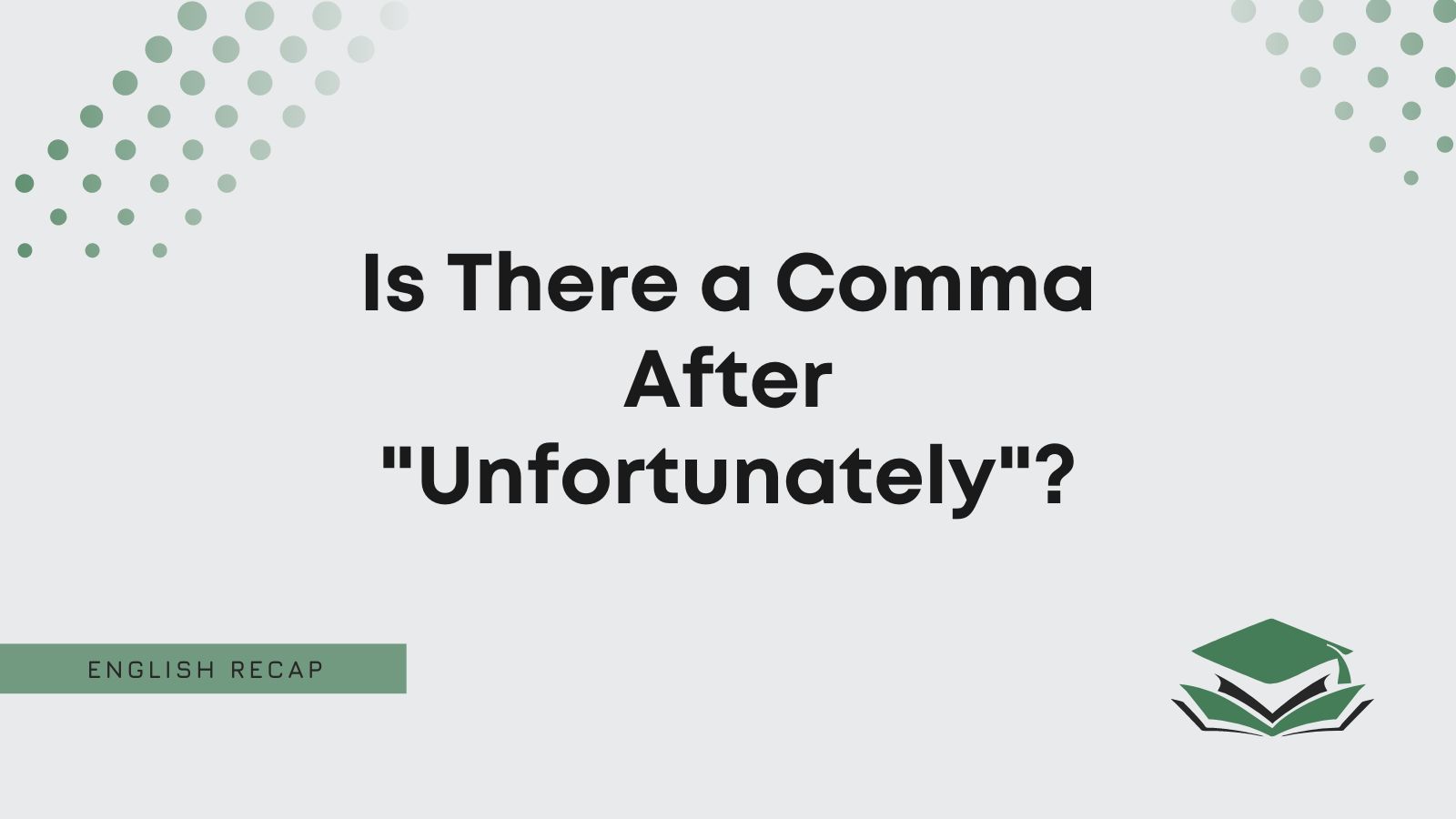Rule 1: Put a comma after “unfortunately” when it starts a sentence as an adverb and refers to the whole sentence.
- Correct: Unfortunately, we didn’t get to see them while they were here.
- Incorrect: Unfortunately we didn’t get to see them while they were here.
Rule 2: Put a comma after “unfortunately” when you use it in the middle of a sentence as a sentence-modifying adverb.
- Correct: We knew that, unfortunately, we had no chance of winning.
- Incorrect: We knew that unfortunately we had no chance of winning.
Rule 3: Do not put a comma after “unfortunately” when you use it to modify a single word rather than the whole sentence.
- Correct: He was unfortunately assaulted while he was walking home from work.
- Incorrect: He was unfortunately, assaulted while he was walking home from work.
Keep reading the rest of the article to find out more about using commas with the term “unfortunately.”
When to Use a Comma After “Unfortunately”
When you are deciding when to use a comma after “unfortunately,” you should refer to Rule 1 and Rule 2.
Rule 1: Use a comma after “unfortunately” when it starts a sentence and refers to the whole sentence.
Here are a few examples where “unfortunately” is used to start a sentence:
- Unfortunately, we are going to make some people redundant.
- Unfortunately, I will not be attending your wedding.
- Unfortunately, the event has been canceled due to unforeseen circumstances.
- Unfortunately, she fell ill and couldn’t join us for the trip.
- Unfortunately, our reservations were not confirmed at the hotel.
Rule 2: Use a comma after “unfortunately” when you use it in the middle of a sentence and refers to the whole sentence.
In these cases, the word reflects an opinion about the situation rather than describing a single verb.
Review these examples to better understand what we mean:
- They told us that, unfortunately, they had canceled the flight and we had to stay in a hotel.
- He failed all his exams and, unfortunately, he cannot retake them.
- I tried reaching out to him multiple times and, unfortunately, there was no response.
- They were expecting a large turnout but, unfortunately, the weather played spoilsport.
- She bought the tickets for the show and, unfortunately, lost them before the event started.
Now, let’s take a look at when you should not use a comma with “unfortunately.”
When to Avoid a Comma With “Unfortunately”
The following rule shows when you do not need to put a comma with “unfortunately.”
Rule 3: You shouldn’t use a comma after “unfortunately” when you use it to describe a single verb.
In these cases, the word “unfortunately” describes a single verb rather than reflecting an opinion or feeling.
In this first example, the word “unfortunately” refers to the whole sentence. It indicates that you feel the whole situation is “unfortunate.” Hence, we need the comma after:
- Unfortunately, by the time we got there all the food had been eaten.
However, in this example, the word “unfortunately” refers only to the “running out” of lamb, rather than to the whole sentence. Therefore, you shouldn’t use a comma:
- They had unfortunately run out of lamb burgers when I got there, but they still had beef burgers.
Here are some more examples of sentences where you should use “unfortunately” without a comma:
- She unfortunately missed the last bus home and had to take a taxi.
- He unfortunately forgot his wallet at the cafe and had to return.
- The team unfortunately lost the championship match by just one point.
- I unfortunately dropped the vase while cleaning the room.
- She unfortunately tore her dress while getting out of the car.
Lastly, let’s have a closer look at when you should include a comma before “unfortunately.”
When to Use a Comma Before “Unfortunately”
When you need to decide when to use a comma before “unfortunately,” you should refer to Rule 4.
Rule 4: Use a comma before “unfortunately” when you insert it in the middle or at the end of a sentence as a sentence-modifying adverb.
Here are some examples to help you understand the rule:
- I will not see you for another three weeks, unfortunately.
- I think that, unfortunately, we will have to look for a replacement for him.
- We’ve run out of ice cream, unfortunately.
- The movie was sold out by the time we arrived, unfortunately.
- She had practiced hard for the performance and, unfortunately, came down with a fever on the day.
- It rained throughout our outdoor picnic, unfortunately.
- He did his best in the competition but, unfortunately, didn’t make it to the finals.
Conclusion
Put a comma after “unfortunately” when it starts a sentence and modifies the entire sentence. Likewise, when it appears mid-sentence and modifies the sentence, put a comma before and after it. However, do not put a comma when it modifies just a single verb.

